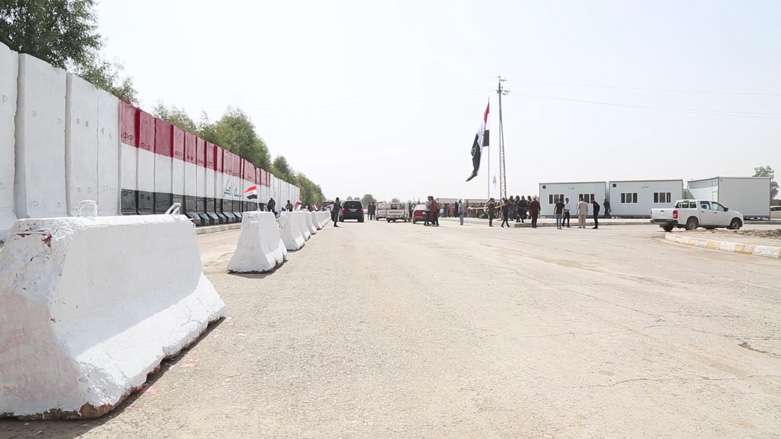Erbil, Baghdad sign agreement to remove illegal customs checkpoints

ERBIL (Kurdistan 24) – The Kurdistan Regional Government (KRG) and the federal government of Iraq have inked an agreement to address controversial domestic customs issues, including multiple illegal checkpoints which charged high prices for goods transported between cities, said a Kurdish official on Tuesday.
On Monday, a delegation from the Kurdish semi-autonomous region visited Baghdad to discuss issues related to the customs points with Iraqi officials.
"Both sides signed a 28-point agreement about the mechanism of imports and exports, the official custom papers, and removing the illegal customs points," said Director-General of the Trade Ministry Nawzad Adham in a statement to the official website of Kurdistan Democratic Party (KDP).
He mentioned that, from now on, the Iraqi government should release necessary instructions and start the implementation of the agreement.
"All over the Kurdistan Region and Iraq, there should be one customs point, and there should not be any illegal checkpoints for charging products imported or exported to certain provinces," Adham added.
Following the tensions between Erbil and Baghdad as a result of the September 2017 referendum, the federal government of Iraq installed several customs points on the region’s borders, including on roads between Erbil – Kirkuk, Sulaimani – Kirkuk, and Duhok – Mosul to charge fees on products brought to the area from the Kurdish region.
Bestun Zangana, a Kurdish lawmaker from Kirkuk who sits in the Iraqi Parliament, stated that Kurdish MPs have put pressure on Baghdad to remove the customs points.
"The Iraqi Parliament was supposed to decide on the removal of those customs points this week, but we hope they will do so in the coming week," Zangana told Kurdistan 24.
The victims of the high fees charged, critics say, are not only those who rely on transporting goods for their livelihood but also regular people who are obliged to then pay higher prices for the goods.
"Once we brought carpets to Kirkuk in two shipments," a shopkeeper told Kurdistan 24. "The customs charged us IQD 30 million ($25,000). Therefore, we had to increase the prices."
Ties between Erbil and Baghdad considerably deteriorated after the unilateral referendum held in the Kurdistan Region and in disputed territories like Kirkuk.
Relations have improved over the past few months, namely after the formation of the new Iraqi government headed by Prime Minister Adil Abdul-Mahdi.
Editing by John J. Catherine
